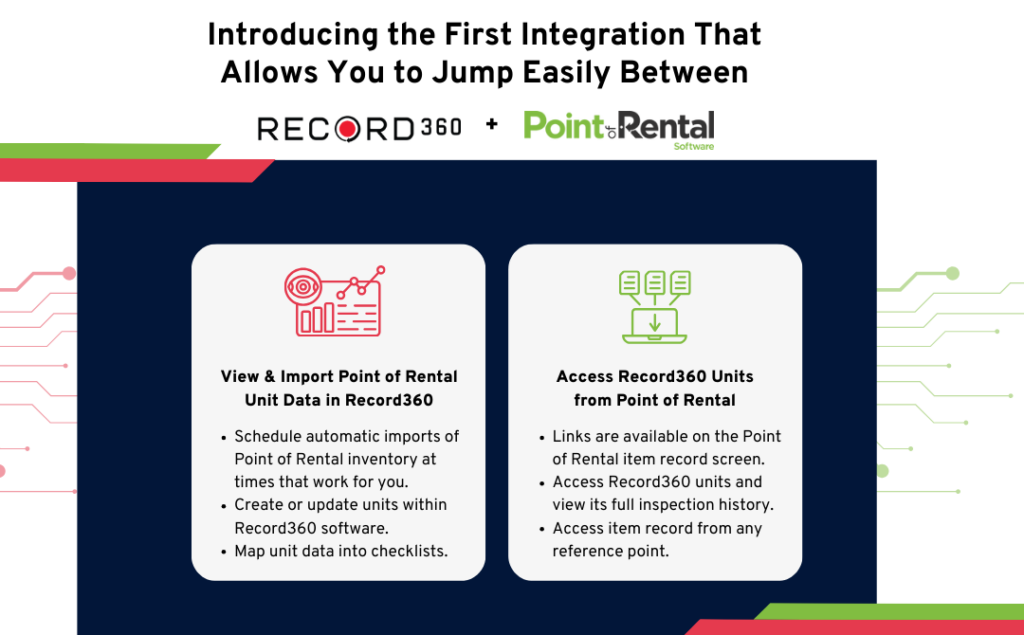Renting assets such as heavy equipment and trucks come with significant risks. Any theft or damages to your rented assets can lead to expensive liabilities and hurt your bottom line big time.
That is why it’s crucial to have a solid rental contract in place to protect your business and manage risks, including equipment malfunctions leading to contractor lawsuits and contract breaches that leave you with hefty legal bills.
In this guide, we’ll cover several tips on making your equipment leasing and rental contract legally bulletproof and the terms and conditions you should build into your agreement.
1. Know your implied legal duties
Before getting into the nitty-gritty of what makes a solid leasing agreement, you’ll need to know your responsibilities as the lessor under the rental contract.
Duty to inspect
Check the equipment when you first get it from the manufacturer and when it comes back from the customer to ensure it’s safe and reasonably free of obvious defects.
Duty to instruct
Inform customers about the proper and safe use, storage, maintenance, transfer, repair (if required) of the equipment.
Duty to warn
Warn your customers of the potential dangers of expected misuse of the equipment, such as unloading an excavator from a flatbed without an appropriate ramp, which might cause it to fall and get damaged.
Most equipment manufacturers provide instructions and warnings on safe and proper machinery handling. Include a provision in your contract limiting your customers’ usage to the manufacturer’s intended use.
This way, you won’t be held liable if the equipment gets damaged because of the customer’s misuse of the machinery.
Also, include a contract requirement for customers to stop using the equipment in case of malfunctions and accidents and to notify you immediately to prevent further damage.
While all these can help protect your business from several potential legal issues, you can’t avoid all liabilities and might still get sued for anything that can go wrong.
Setting up legal protections through bulletproof contracts, having a good process of getting signatures, and establishing proper documentation is crucial to lower your legal costs in case of disputes.
The more comprehensive these legal protections are, the more likely you’ll discourage other parties from filing claims and lower the amount you have to pay in case of a settlement.
2. Increase legal protection through your equipment rental contract
A rental contract touches on many areas of leasing exposures, such as equipment damages, class action lawsuits, and personal injury claims. If your agreement doesn’t cover these risks, you leave your business open to a long list of potential liabilities.
That is why you need to ensure your contract includes all the necessary information and build terms and conditions, rights, and remedies into your leasing agreement to protect your business.
An excellent way to increase your legal protection through your rental contract is to have a Master Services Agreement (MSA) with your customers.
An MSA sets the terms for any additional rental contracts that you sign with your customers in the future.
This way, when you need to exchange or add new pieces of equipment to the contract or do multiple business arrangements with existing customers, you won’t need to create a revised agreement and get it signed every single time.
An MSA provides your business some umbrella protection if you don’t get a signature or don’t have a rental contract for some reason since the master lease will be the assumed terms of your equipment rental agreement.
Push for master agreements, particularly if you’re doing repeat business or leasing $50,000 to $200,000 worth of equipment as a first line of legal protection against potential expensive liabilities.
At a minimum, if you’re doing daily rental contracts with new customers, ensure your agreement includes a provision that says, “This contract and these contract terms will apply to all future rented items and agreements with the lessor,” but your safest bet is to go for an MSA.
Master agreements vs. Individual rental contracts
Daily rental contracts are single page front and back agreements commonly used for one-off rentals of one or a couple of equipment separately.
An MSA is a legal document that states the terms of the relationship between the lessor and lessee going forward. It contains the terms both parties agreed to, negotiated, and signed off on once.
So if your customer rents your equipment, your company sends a purchase order to your client and processes the release and delivery of the equipment. The customer then pays for the rental amount and accompanying fees according to the payment terms in the MSA.
With this, you won’t need to renegotiate the contract terms and conditions for each equipment or revise your existing contract since customers are reaffirming the master agreement every time they rent your machinery.
This eliminates a key bottleneck of the transaction process for both you and your customers while ensuring your business has the legal protection measures in place through your rental contract.
A vital aspect of this process is documenting the condition of the equipment when you released it, when it arrived at the job site, and when it’s returned to you as this provides evidence of the charges to your customer.
The better you document the in and out process of your equipment, the more evidence you have, and the more likely you’ll get paid and have solid evidence in case of a dispute.
3. Use the right technology to obtain authorized contract signatures
Getting signatures on your agreement terms can be challenging with the endless back and forth that comes with paper contracts. You’ll also need to make sure the person signing the contract is authorized to sign on behalf of the company or lessee.
Use verification technology including geolocation, time stamps, signatory Internet Protocol (IP) addresses, Public Key Infrastructure (PKI), and digital signature apps to help validate contract e-signatures and signatories easily and in real-time.
With this technology, you get your legal documents to someone you’re sure has the authority to sign, maybe the company owner or president, and ensure the signature is valid and will hold up in court.
Building all this technology into your process makes obtaining and verifying signatures more reliable and efficient than pen and ink rental agreements.
4. Implement a Damage Waiver policy
When you sell damage waivers, you’re essentially selling a waiver of your claims to collect physical damage to your equipment when it comes back from a renter. This usually comes in an additional 10% or 15% of your rental fee.
Damage waivers allow you to offset your company’s long-term costs associated with equipment repairs and replacements with the percentage you get from your damage waiver sales.
However, you need to implement it properly and review your current damage waiver program to resolve potential disputes and avoid lawsuits by considering these tips.
- Include a separate line item for the Damage Waiver fee charge on the front of your equipment rental contract.
- Add a statement that says, “Damage Waiver is optional” on both the front and back portion of your rental contract. This shows customers that they can opt out of and not pay for the waiver.
- Include a Damage Waiver provision on the back portion of your rental contract or in a separate addendum. Use simple language and as little legal jargon as possible so customers understand the terms easily.
- Use print large enough for customers to read and include language in your rental contract that states, “A larger-font version of these Damage Waiver terms and conditions is available on request.”
- Provide a separate Damage Waiver guide or Addendum to customers who purchase the waiver to ensure they understand its terms, policies, and coverage.
- Train your counter employees on the value of Damage Waivers and ensure they can communicate the savings on costs and time the waiver provides your customers.
Implementing a Damage Waiver policy can get tricky, but as long as you know how best to administer your program, you’ll gain its benefits, offer its value to your customers, and avoid lawsuits.
Additionally, check with your insurance company first for coverage, or you could be in for a terrible surprise when you end up with badly damaged equipment and your insurance policy doesn’t cover it.
Make your contracts legally effective now
Creating a solid rental contract helps you protect and legally represent your business effectively from equipment leasing risks.
It also makes your equipment rental processes more efficient since all the terms and conditions are clear-cut from the get-go, preparing you for legal issues, lowering your legal fees, and reducing lawsuits.
Interested in learning more about Record360? Schedule a demonstration today.



